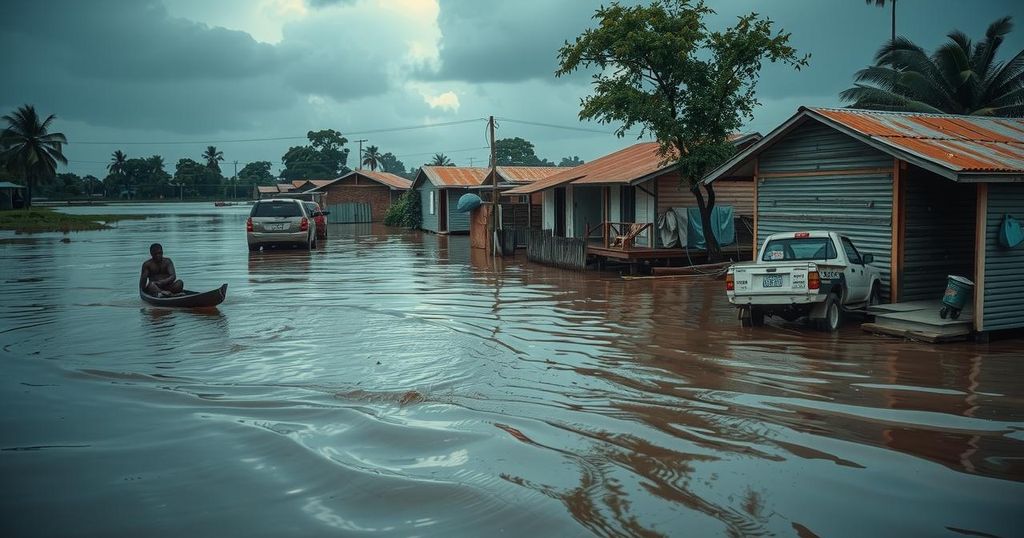Severe Flooding Affects Over 1.3 Million in South Sudan, UN Reports

Over 1.3 million people in South Sudan have been affected by severe flooding due to heavy rains, with over 327,000 displaced according to the UN. The flooding has rendered vital supply routes inaccessible, significantly hampering humanitarian efforts. Further assessments revealed additional impacted individuals, raising concerns over worsening food insecurity in an already vulnerable nation.
The United Nations humanitarian agency has reported that over 1.3 million individuals in South Sudan have been severely impacted by extensive flooding due to persistent heavy rains. In an update released in Juba, the capital, the UN Office for the Coordination of Humanitarian Affairs (OCHA) noted that the flooding has displaced approximately 327,000 people across 42 counties and the Abyei Administrative Area. Following recent assessments by the government and interagency partners, an additional 230,000 individuals in the states of Jonglei, Northern Bahr el Ghazal, and Upper Nile were identified as affected by these extreme weather conditions. The flooding has significantly disrupted humanitarian efforts, as 15 major supply routes have become impassable, thereby limiting access to communities that require assistance. Moreover, the persistent rainfall has exacerbated the situation by impeding physical access to those seeking refuge on higher ground, with many roads damaged or submerged. The current flooding crisis represents some of the worst in decades for South Sudan, devastating lives, homes, and essential infrastructure. The UN has also forecasted above-average rainfall and river flows from Uganda, which may lead to record-breaking flooding in the region. Furthermore, South Sudan is recognized as one of 18 global hunger hotspots, where food insecurity is rapidly deteriorating, based on the UN agencies’ early warnings for the acute food insecurity outlook from June to October.
South Sudan has faced significant humanitarian challenges since its independence in 2011, exacerbated by recurrent flooding, conflict, and economic instability. The country is prone to flooding, particularly during the rainy season, which typically runs from May to October. This year’s heavy rains have led to unprecedented levels of water inundating vast areas, displacing hundreds of thousands and destroying key infrastructure. The crisis is intensified by factors such as a lack of adequate emergency response preparedness and ongoing food insecurity, positioning the country among the most vulnerable in terms of humanitarian needs.
In summary, South Sudan is currently grappling with a humanitarian crisis that has affected over 1.3 million individuals due to severe flooding caused by relentless rainfall. The situation highlights the urgent need for increased humanitarian access and support in light of deteriorating conditions. The worsening impact of flooding combined with existing food insecurity underscores the fragility of the situation in South Sudan and calls for immediate attention from both domestic and international communities.
Original Source: www.thehansindia.com







